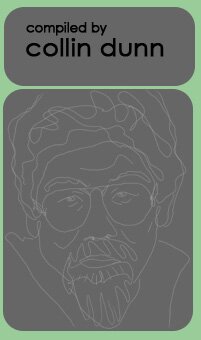
|
|


|
|
|
Editor's note: Okay, we know David Suzuki doesn't exactly qualify as an "heir brain," but he is the father of a very well accomplished one, (see his daughter Severn's speech here, in the "Heir Brains" department) and he certainly has some wise words of his own. Below is a collection of some of David Suzuki's wisest words; there are few better qualified to dispense them and the heir brains of the world would do well to pay them the attention that Dr. Suzuki deserves.
If the people will lead, the leaders will follow. The human brain now holds the key to our future. We have to recall the image of the planet from outer space: a single entity in which air, water, and continents are interconnected. That is our home. Children haven't invested time or effort into the status quo. They're completely open. Now the problem is that children are going to take another 20 or 30 years to replace us and we don't have 20 or 30 years. One of the most frightening things is to hear young people say, 'Oh yeah, there used to be a creek here. There used to be minnows down here. There used to be woods over there.'That just sends shivers up my back. What the hell are we going to leave for our kids? What are they going to remember? And when you think of what grandma and granddad remember and when you think of what mum and dad remember and then you ask, 'What are they going to have when they get to be adults?' It's pretty terrifying. Education has failed in a very serious way to convey the most important lesson science can teach: skepticism. We have to acknowledge there are forces impinging on us that are beyond our understanding or control. We have to have sacred places that are far more than simply opportunities. We have to know we're immersed in nature. If we are the air, the soil, the fire of the sun, then the way we treat those sacred elements will determine the outcome for the entire planet. I believe the challenge is to recognize the fact that we remain imbedded in the natural world -- in our biological nature. We can't be perfect. We have to live with contradiction, but we have to have the target, what we have to aim for, in the long run. I know I'm not going to save the world, but I do my best so I can look into my grandchildren's eyes and tell them 'Grandpa did the best he could.' We have to find ways to achieve a balance wherever we live and in the culture we find ourselves.We ARE the environment. What we do to the air, water and soil, we're doing directly to ourselves. My fear is that we're not going to do anything radical or drastic until we hit the wall. I keep saying that I feel like we're in a car heading to a brick wall at 100 miles and hour and everybody in the car is arguing about wanting to drive and nobody is saying, 'Turn the steering wheel and put on the brakes!' If we don't see that everything is interconnected, then any action has no consequences or responsibility. Most of us live in cities, in a human created environment, and many people ask me: "well, who needs nature?" So, people tell me they care about the environment, yet they drive huge SUVs and never reflect on their impact on climate or weather. We buy fresh fruits and vegetables in Canada in the middle of winter, but we never reflect on the Earth cost of shipping them from halfway around the world. So the challenge is to reconnect ourselves to the world. Everything is connected to everything else Sources: davidsuzuki.org, Natural Life Magazine, and The Sacred Balance. |
